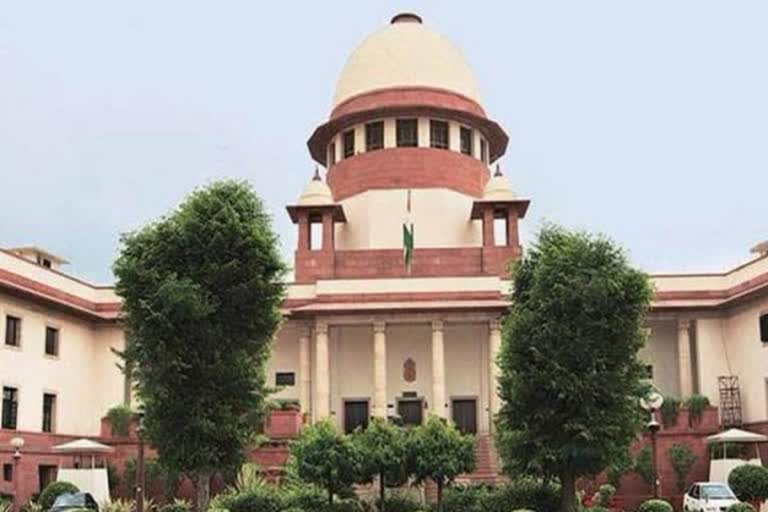नई दिल्ली : उच्चतम न्यायालय में मुस्लिम संगठनों ने गुरुवार को निर्मोही अखाड़े के इस दावे को खारिज कर दिया कि अयोध्या में विवादित स्थल पर मुस्लिमों का वैध मालिकाना हक नहीं हो सकता है. क्योंकि उन्होंने 1934 से 1949 तक वहां नियमित नमाज नहीं पढ़ी. मुस्लिम संगठनों ने कहा कि अवैध कार्यों के लाभ हासिल नहीं किए जा सकते हैं.
अखाड़ा ने प्रधान न्यायाधीश रंजन गोगोई की अध्यक्षता वाली पांच न्यायाधीशों की संविधान पीठ को कहा था कि कब्जा पूरी तरह उसका है क्योंकि 1934 के दंगों के बाद 1949 तक मुस्लिमों को केवल शुक्रवार की नमाज पढ़ने की इजाजत थी और वह भी पुलिस संरक्षण में.
इलाहाबाद उच्च न्यायालय ने अखाड़ा को विवादित 2.77 एकड़ राम जन्मभूमि - बाबरी भूमि का एक-तिहाई आवंटित किया था
हिंदू संगठन ने कहा था कि पुलिस संरक्षण में शुक्रवार की नमाज पढ़ना अखाड़ा के कब्जे की कानूनी प्रकृति में बदलाव नहीं लाएगा और इस निष्कर्ष पर नहीं पहुंचा जा सकता कि हिंदुओं और मुस्लिमों दोनों का संयुक्त कब्जा था.
सुन्नी वक्फ बोर्ड और मूल याचिकाकर्ता एम. सिद्दीक सहित अन्य की तरफ से पेश हुए वरिष्ठ वकील राजीव धवन ने यह कहते हुए हलफनामे का विरोध किया कि मुस्लिमों ने इसलिए नमाज नहीं पढ़ी क्योंकि उन्हें इसकी अनुमति नहीं दी गई.
पीठ ने कहा, आप (अखाड़ा) गैर कानूनी काम नहीं कर सकते और फिर उससे लाभ हासिल करना चाहते हैं. अगर आप अवैध काम नहीं भी करते हैं तो भी आप दूसरों के अवैध कार्यों से फायदा नहीं उठा सकते.
पीठ में न्यायमूर्ति एस ए बोबडे, न्यायमूर्ति डी वाई चंद्रचूड़, न्यायमूर्ति अशोक भूषण और न्यायमूर्ति एस ए नजीर भी शामिल हैं.
पढ़ें- सुप्रीम कोर्ट में अयोध्या केस की सुनवाई का 17वां दिन, जानें पूरा विवरण
उन्होंने कहा, 'मुस्लिम नमाज पढ़ने क्यों नहीं आए? वे इसलिए नमाज पढ़ने नहीं आते थे क्योंकि आपने उन्हें आने नहीं दिया गया.'
इसके बाद धवन ने छह दिसम्बर 1992 को विवादित ढांचे को गिराए जाने का जिक्र किया और कहा कि उच्चतम न्यायालय ने कहा था कि कुछ शरारती तत्वों ने ऐसा किया.
उन्होंने कहा कि निर्मोही अखाड़ा और अन्य लाभ का दावा नहीं कर सकते हैं.
(इनपुट भाषा)



